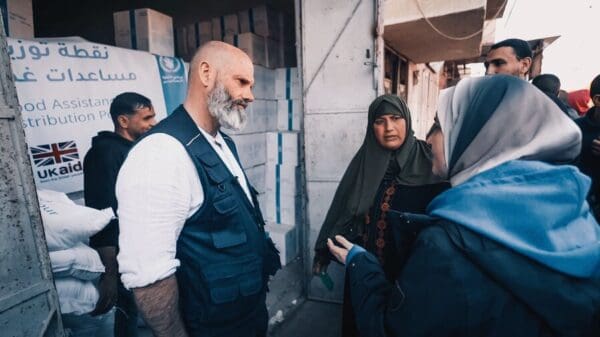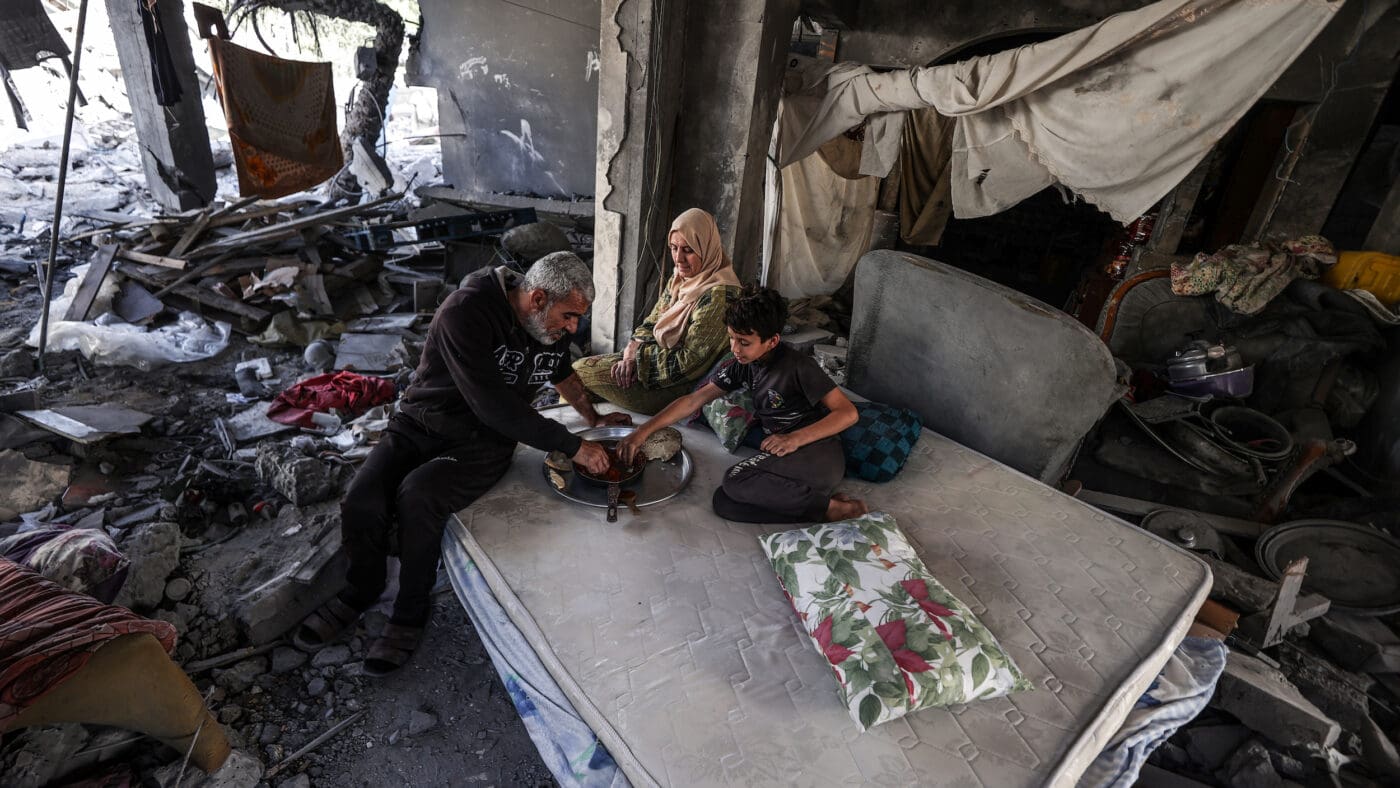
Palestine
For decades, Palestine has faced a humanitarian crisis. Now, the violent conflict is driving hundreds of thousands of people into catastrophic levels of hunger.
HUNGER AND MALNUTRITION CRISIS
The recent escalation of conflict in Palestine has pushed people already facing extreme poverty into extreme hunger. No one in Gaza is safe from starvation. The United Nations World Food Programme (WFP) is providing emergency food assistance to people in Palestine every day to address the urgent needs.
of Gaza’s population is displaced due to the ongoing conflict
People in Gaza are facing extreme levels of hunger
People in Gaza assisted by WFP in April 2024
What’s Causing Hunger?
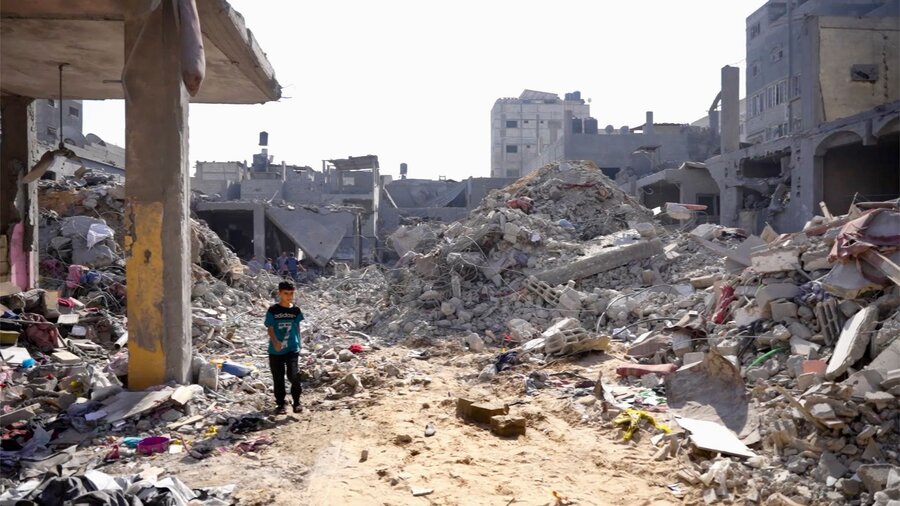
War Threatens Food Security
Ongoing conflict, including the recent increase in hostilities, has destroyed people’s homes and livelihoods in Palestine. By causing mass displacement and damaging sources of food production like restaurants and markets, the war has also fueled a hunger crisis in Gaza. Today, half of Gaza’s population – 1.1 million people – is starving.
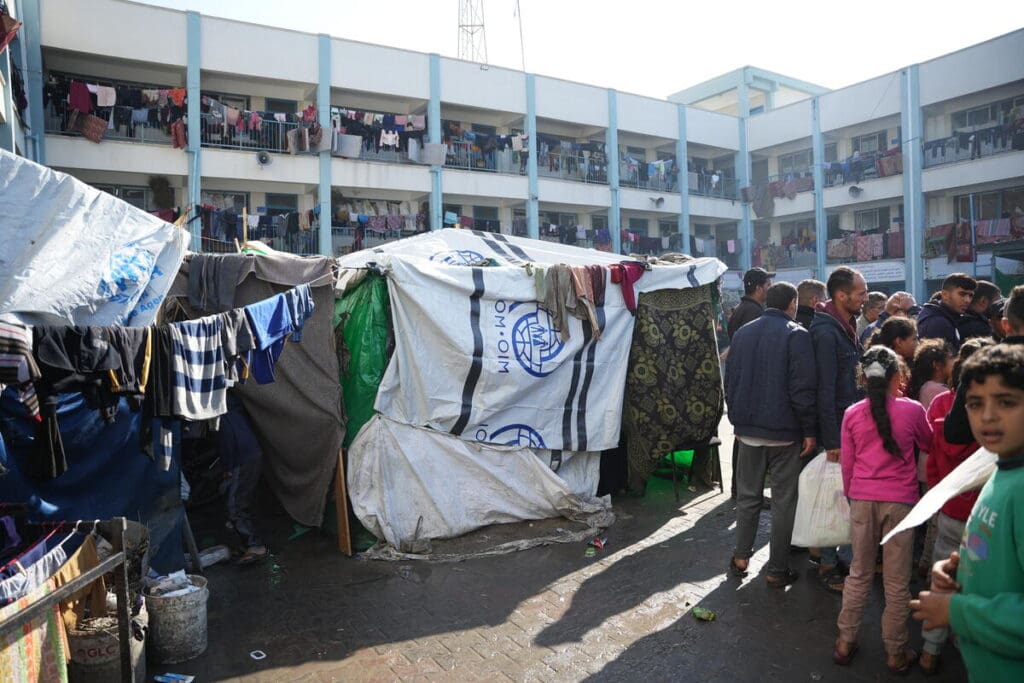
A Restricted & Stagnant Economy
With limited resources, restrictions on trade and high unemployment, Palestine has a stagnant economy and mass poverty. As economic conditions worsen due to the global food crisis and current conflict in the region, the purchasing power of Palestinians is further eroded – limiting their access to food and other essentials.
WFP’s Work in PAlestine
The U.N. World Food Programme has worked in Palestine since 1991. We provide food assistance to people facing the most extreme forms of hunger.
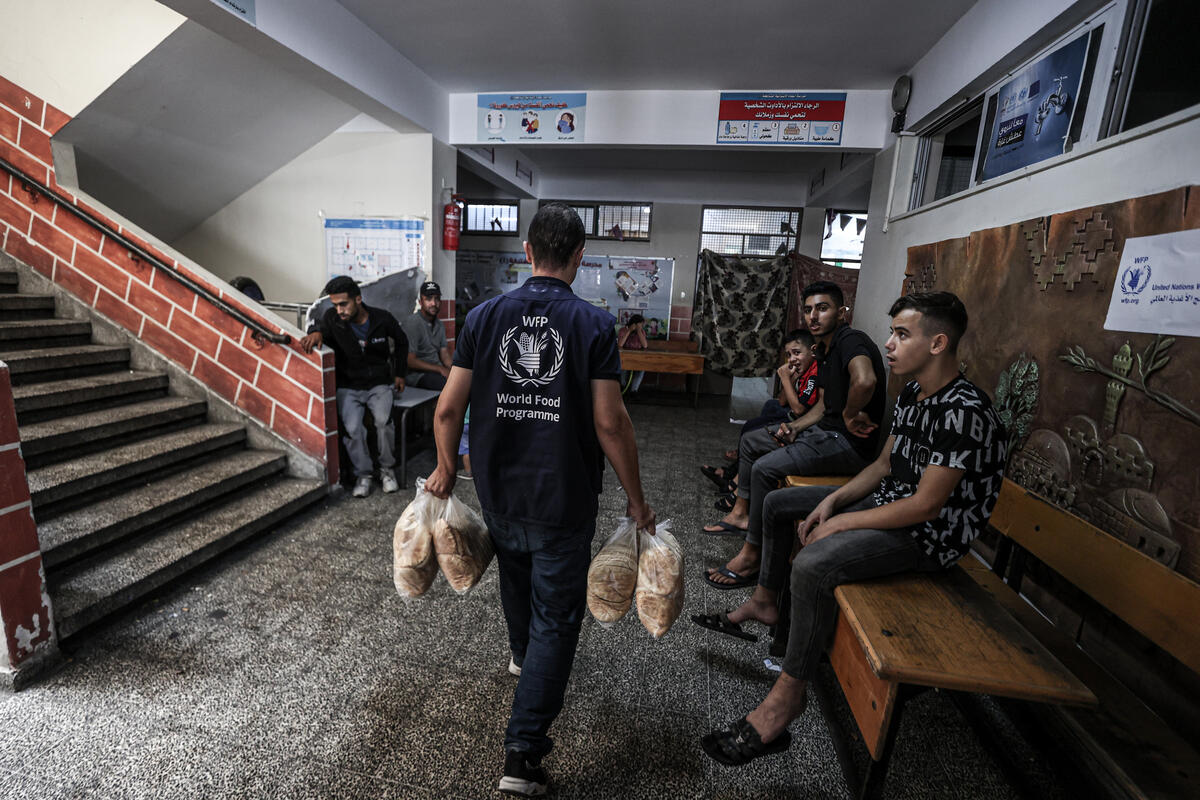
In October, WFP immediately launched emergency operations to provide urgently needed food assistance. We have provided food and cash to more than 1 million people in Palestine since the start of the current crisis.
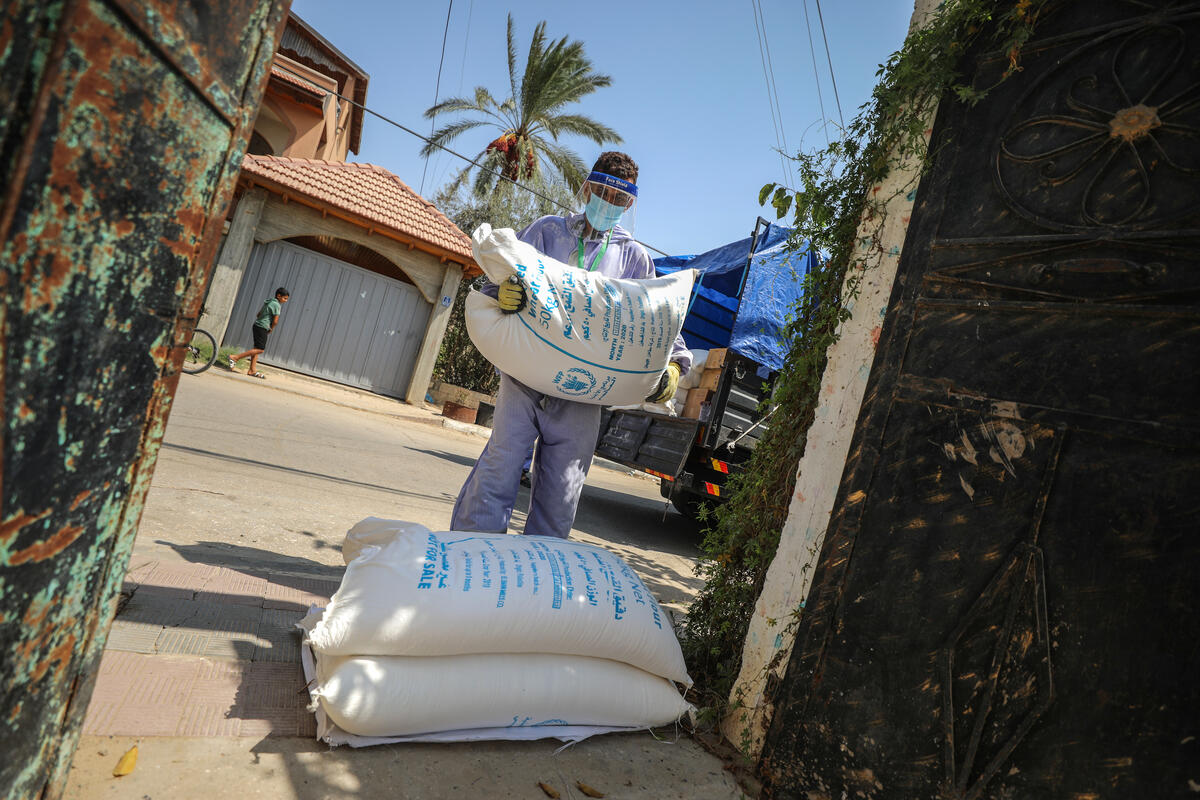
We assist people in Gaza and the West Bank through in-kind food assistance, including wheat flour, chickpeas and lentils, as well as electronic vouchers. Palestinians can use the vouchers to buy foods of their choice at their local shops.
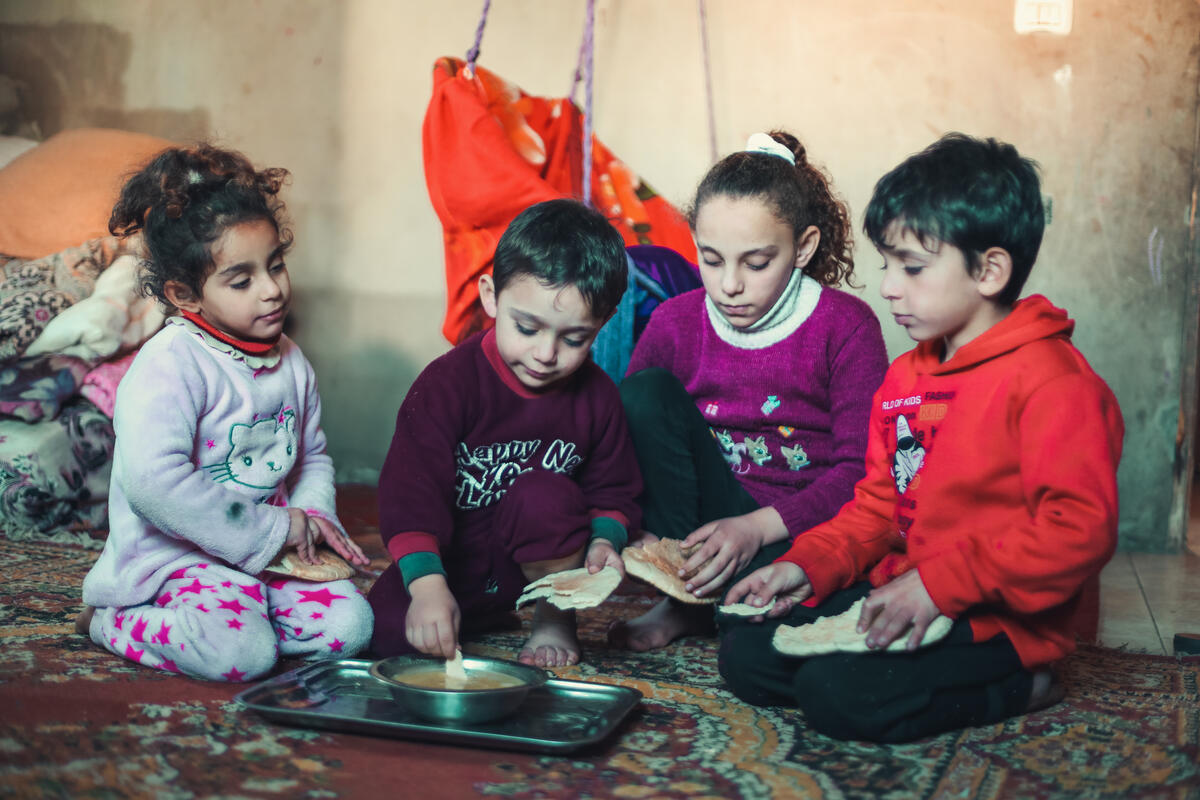
To help them build resilience to climate shocks, WFP equips small-scale farmers in Palestine with agricultural training and tools. These assets help them to adapt their livelihoods while supporting their local economies.
Help Save Lives by Sending Food
When you donate, you help us deliver critical food relief to the most vulnerable people in Gaza and the West Bank. You can make difference in someone’s life – send food today.
What’s HAppening in Palestine?
Read the latest stories and news reports from Gaza and the West Bank.
